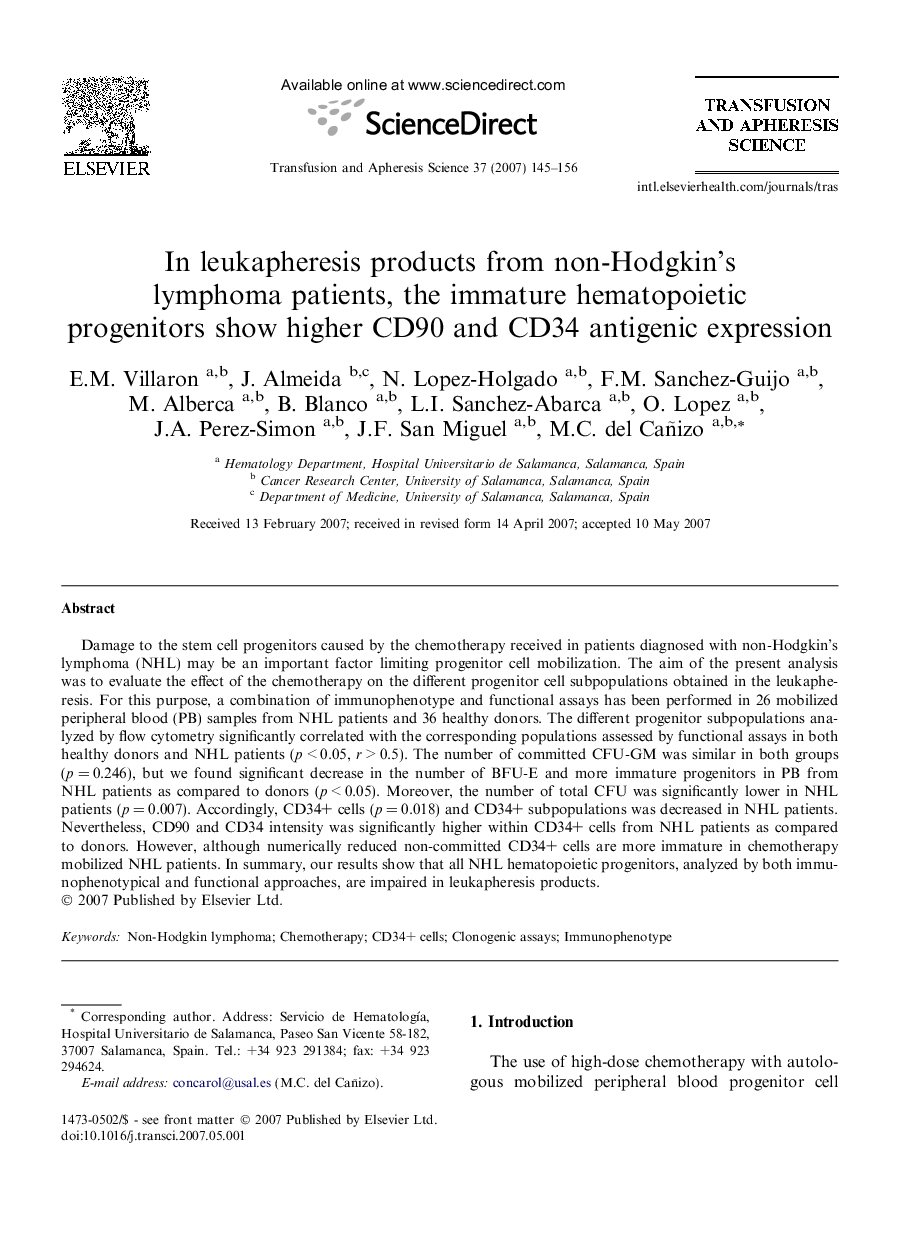| Article ID | Journal | Published Year | Pages | File Type |
|---|---|---|---|---|
| 3336302 | Transfusion and Apheresis Science | 2007 | 12 Pages |
Abstract
Damage to the stem cell progenitors caused by the chemotherapy received in patients diagnosed with non-Hodgkin's lymphoma (NHL) may be an important factor limiting progenitor cell mobilization. The aim of the present analysis was to evaluate the effect of the chemotherapy on the different progenitor cell subpopulations obtained in the leukapheresis. For this purpose, a combination of immunophenotype and functional assays has been performed in 26 mobilized peripheral blood (PB) samples from NHL patients and 36 healthy donors. The different progenitor subpopulations analyzed by flow cytometry significantly correlated with the corresponding populations assessed by functional assays in both healthy donors and NHL patients (p < 0.05, r > 0.5). The number of committed CFU-GM was similar in both groups (p = 0.246), but we found significant decrease in the number of BFU-E and more immature progenitors in PB from NHL patients as compared to donors (p < 0.05). Moreover, the number of total CFU was significantly lower in NHL patients (p = 0.007). Accordingly, CD34+ cells (p = 0.018) and CD34+ subpopulations was decreased in NHL patients. Nevertheless, CD90 and CD34 intensity was significantly higher within CD34+ cells from NHL patients as compared to donors. However, although numerically reduced non-committed CD34+ cells are more immature in chemotherapy mobilized NHL patients. In summary, our results show that all NHL hematopoietic progenitors, analyzed by both immunophenotypical and functional approaches, are impaired in leukapheresis products.
Related Topics
Health Sciences
Medicine and Dentistry
Hematology
Authors
E.M. Villaron, J. Almeida, N. Lopez-Holgado, F.M. Sanchez-Guijo, M. Alberca, B. Blanco, L.I. Sanchez-Abarca, O. Lopez, J.A. Perez-Simon, J.F. San Miguel, M.C. del Cañizo,
